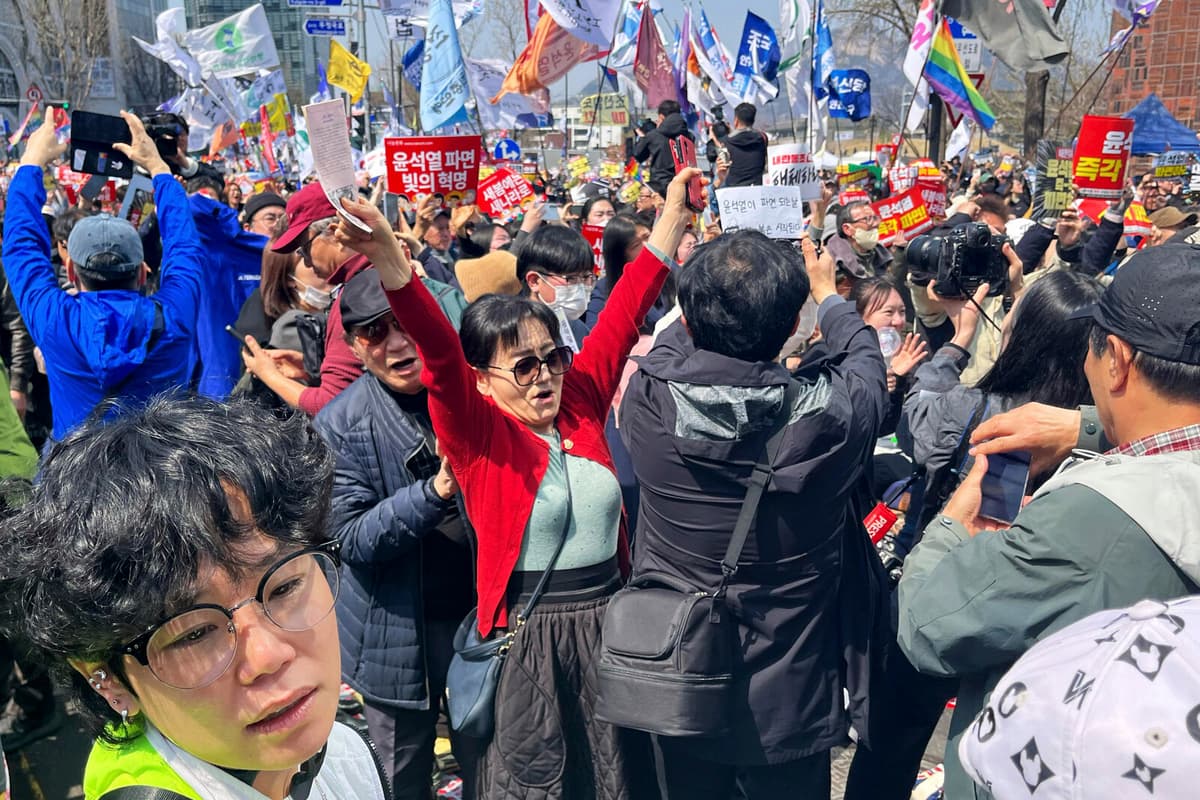I am really sorry and devastated that I did not live up to your expectations, he says.
The statement comes a few hours after the country's constitutional court ruled that Yoon's declaration of a state of emergency and martial law on December 3 did not meet the legal requirements for a national crisis.
The President also broke the law when he sent soldiers to parliament in an attempt to stop it from repealing the martial law, reports the South Korean news agency Yonhap.
The verdict means that Yoon Suk-Yeol is convicted in the impeachment trial and immediately removed from office.
The benefits of upholding the constitution by removing the accused from office far outweigh the disadvantage to the nation of removing a president, said the court's chairman Moon Hyung-Bae when he announced the decision in live television.
Election within two months
South Korea must now hold an election within two months to find a new president.
Yoon's party announces that they "humbly accept" the court's decision, while the largest opposition party welcomes it as a "victory for the people". In central Seoul, activists who have demanded Yoon's resignation for months are celebrating.
The verdict, which was unanimous, is the culmination of four very dramatic months in the world's 12th largest economy. Yoon shocked both South Korea and the world by declaring martial law and claiming that the country needed to be protected from a "communist" opposition that would sell out to archenemy North Korea.
The martial law was repealed after a few hours with a vote of 190 to zero in parliament, which managed to assemble despite Yoon ordering police and military to stop them.
Risks death penalty
His presidential powers were revoked when parliament voted to put him on trial in mid-December. The 64-year-old was arrested in a large police operation on January 15, after weeks of refusing to appear before the authorities and instead barricading himself in his residence.
He has since been released on bail, despite the former president also being prosecuted in a regular criminal case. There, he risks life imprisonment or even the death penalty if found guilty of treason.
Large protests were expected in South Korea's capital Seoul after Friday's verdict, regardless of how the court would rule.






